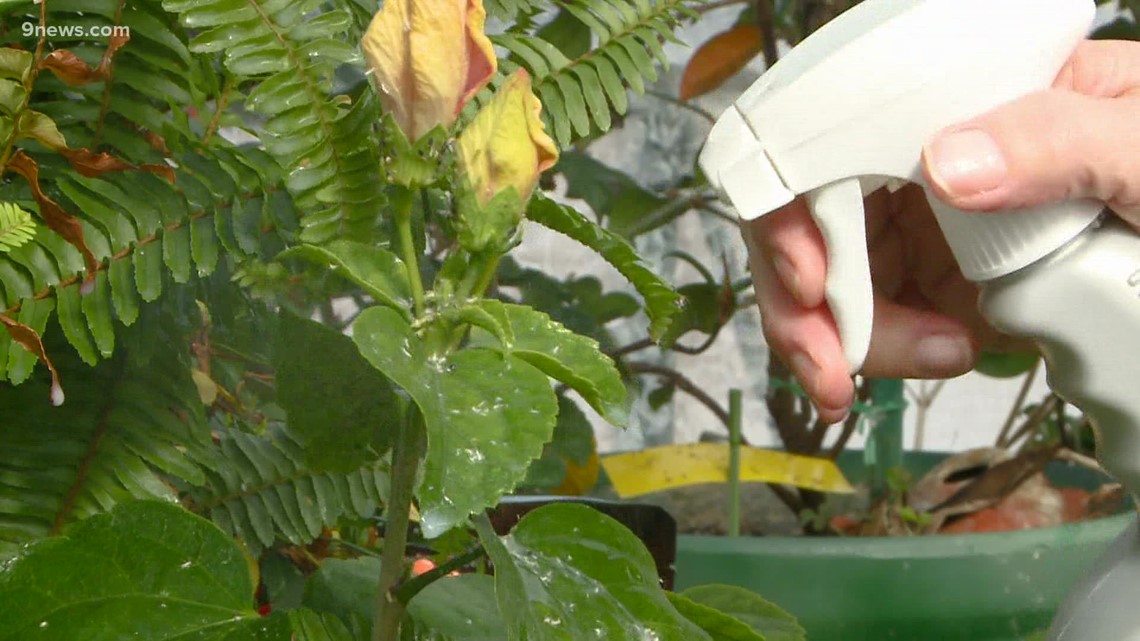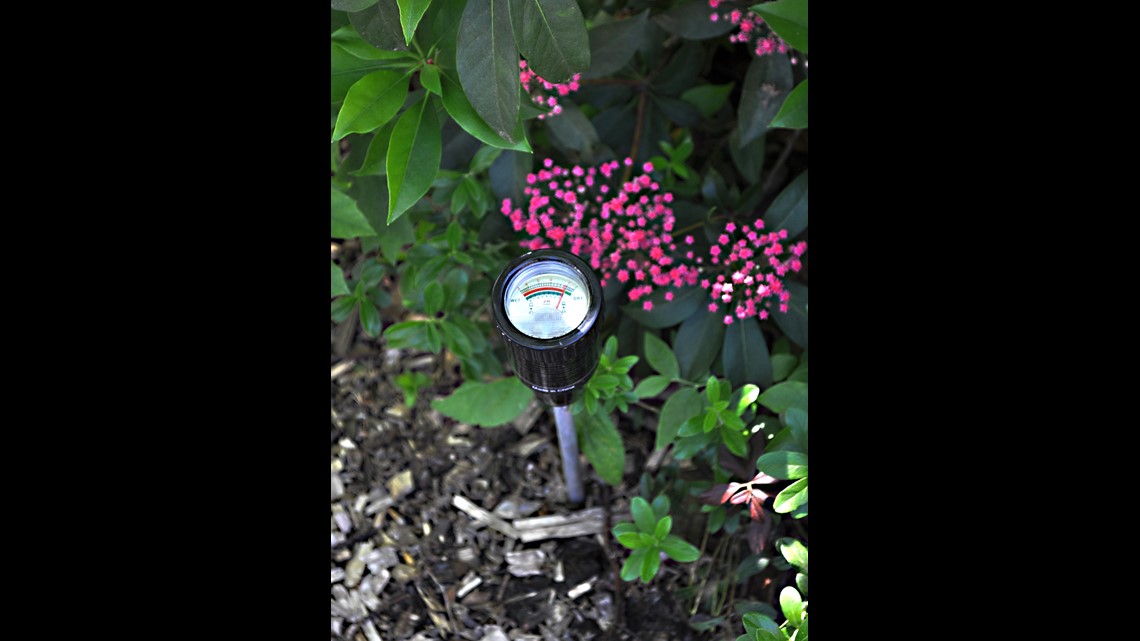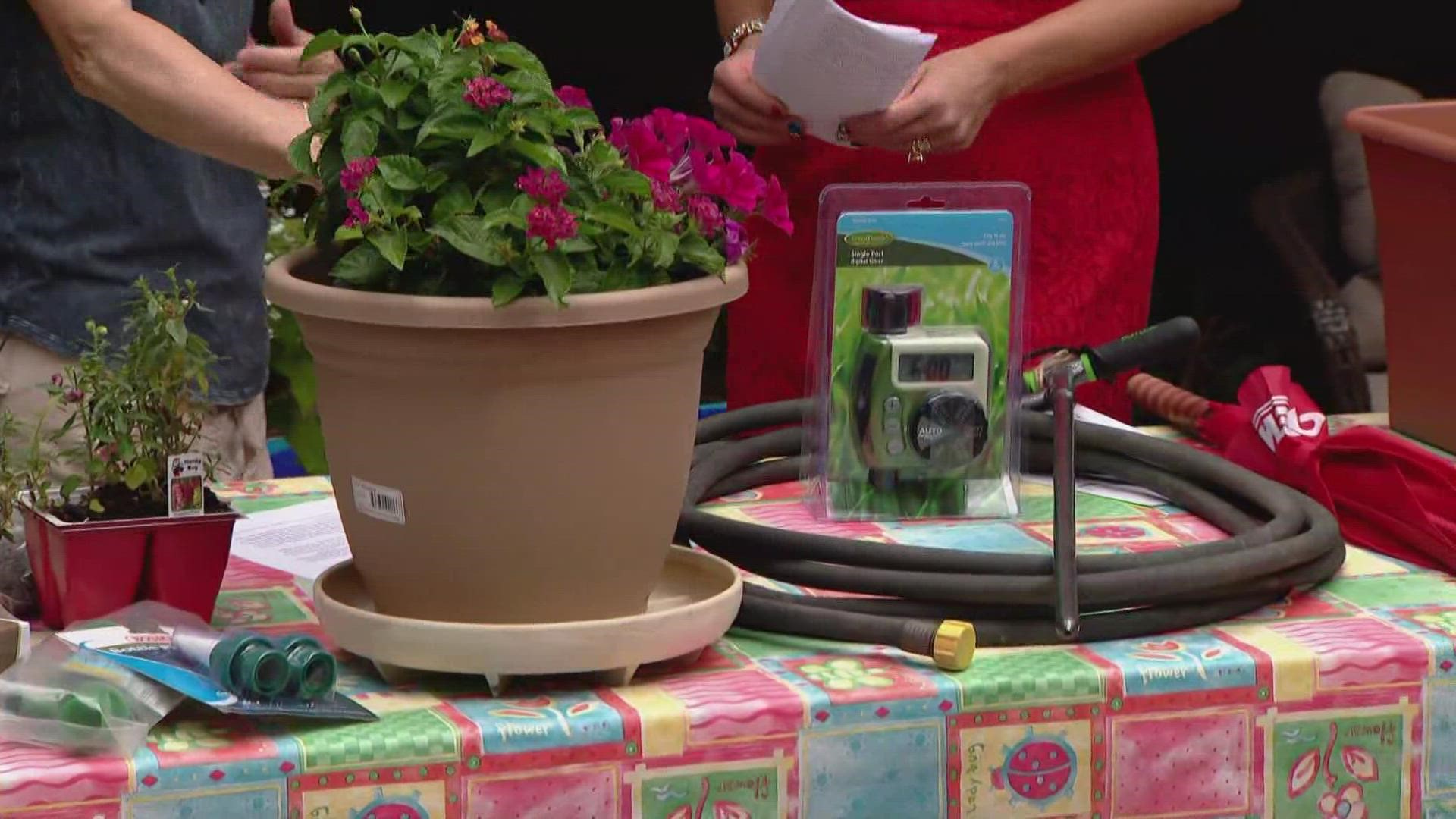COLORADO, USA — With this weekend's high temperatures, it's especially important to know how to properly care for your plants. Here are some helpful tips for keeping flowers and vegetables healthy and safe in the summer heat.
Landscape: Helping plants through a heat wave and saving water at the same time
Even in our high plains region, higher than normal heat, dryness, and extreme temperature swings of our summers can cause stress and potential damage to the garden. Even plants that prefer warm weather are not always big fans of temperatures above 95 degrees or drastic temperature changes.
What is too hot?
This will depend on the plants. Cool season plants like pansies and snapdragons and veggies like broccoli, lettuce, etc. don’t like temps above 75. You will see those veggies bolt in hot weather (go to flower and seed). Warm season plants like tomatoes, peppers, squashes, zinnia, impatiens, & annual vinca love & thrive in warm temps (75-90). But when we get in the mid and upper 90s to 100, even those can slow production or suffer. Newly planted perennials, trees & shrubs can also suffer. The more mature a plant is, the better it should be able to withstand the heat.
It's hot outside - Should I water more?


Not necessarily. Plants may look wilted just as a reaction to the afternoon heat; they may bounce back in the cooler evenings. If that happens, they don’t need water. If they are still wilted in the morning, they need water. If you just water without knowing how much moisture is in the soil, you may overwater them. Plants can temporarily shut down all their functions when we get to the high 90s.
Solution: Get a water meter AND Water deeply!


Not just during the heat spell, but all the time. Train the roots to go deeper for water. The deeper the roots go to get water the better off they are when the heat or stress comes. The top few inches of soil dries out much quicker than the deeper soil. This is true of all plant categories – annuals, perennials, shrubs, trees & veggies.
Remember plants are pretty resilient. Just like people - keep your plants as healthy as possible! When they are healthy, they will be more resilient when stressed by heat or other environmental elements.
Information courtesy Associated Landscape Contractors of Colorado. For help with designing, installing or maintaining your landscape, go to ALCC's Web site at www.alcc.com and click on find a landscape professional.
SUGGESTED VIDEOS: Colorado Climate

